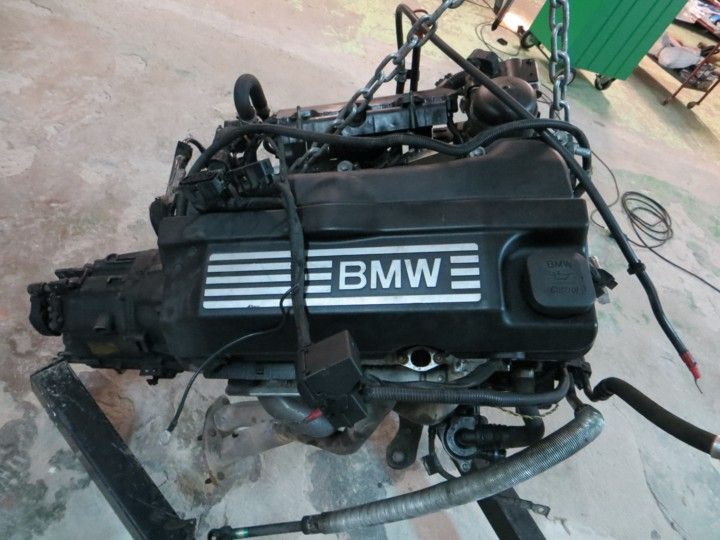BMW 318ti Testimonial: What Makes This Version Attract Attention
BMW 318ti Testimonial: What Makes This Version Attract Attention
Blog Article
Crucial Considerations for Picking the very best Engine for Your Needs
In the world of selecting the optimal engine to fulfill your demands, a number of critical elements demand precise factor to consider to guarantee ideal efficiency and effectiveness. From the nuanced balance between power and efficiency to the often-overlooked facets of upkeep and service demands, each aspect plays an essential function in establishing the most ideal engine for your particular demands. As the complexity of engine innovations remains to evolve, discerning the most suitable option requires a deep understanding of the interaction in between various factors to consider. By discovering the intricate web of variables that underpin this decision-making process, a clearer path arises in the direction of selecting an engine that not only satisfies yet exceeds your expectations.
Power and Performance
When examining engines for optimal performance, it is critical to prioritize both power outcome and performance. Efficiency refers to exactly how well the engine transforms gas into functional power. By carefully assessing both power and performance, you can choose an engine that delivers ideal efficiency and fulfills your requirements efficiently.
Gas Performance and Economy
Gas efficiency refers to the engine's ability to transform fuel right into energy with marginal waste, directly impacting operating expenses and ecological sustainability. Engines with higher fuel effectiveness not only reduce gas expenditures however likewise decrease carbon exhausts, adding to a greener operation.

Compatibility and Application
Thinking about the fuel performance and economic climate of an engine, the next vital aspect to address is its compatibility and application within details operational contexts. Compatibility describes exactly how well the engine incorporates with the general system or tools it powers. It involves variables such as physical dimensions, placing options, electric interfaces, and control systems. Making certain compatibility is vital to prevent problems such as getting too hot, vibrations, or power inequalities (bmw 318ti).
Furthermore, the application of the engine is just as vital. Different engines are created for details purposes, whether it be industrial equipment, aquatic vessels, automobiles, or power generators. Comprehending the designated application enables the selection of an engine that can deliver the necessary power result, torque, and functional characteristics. A high-revving engine made for efficiency cars would not be suitable for heavy-duty construction equipment that requires high torque at low speeds.
Upkeep and Service Needs
Upkeep and service requirements play an essential function in ensuring the durability and optimum performance of an engine. Regular upkeep is important to stop breakdowns, extend the life-span of the engine, and keep its effectiveness. When selecting an engine, it is vital to take into More Info consideration the producer's suggested upkeep timetable and the availability of service centers or certified service technicians.
Variables such as the frequency of oil modifications, filter replacements, and general evaluations can substantially influence the engine's performance. Some engines may call for even more frequent servicing based on their style and usage, while others might have longer intervals between maintenance checks. It is crucial to comply with these service requirements to avoid pricey repair services and unanticipated downtime.

Price and Budget Factors To Consider
Spending plan restrictions frequently play a significant function in the decision-making procedure when picking an engine for a specific application. When considering the expense and budget plan implications of picking an engine, it is important to assess not just the initial acquisition price however also the lasting expenses linked with maintenance, fuel intake, and prospective upgrades or repairs. It is critical to strike a balance in between the upfront price of the engine and its overall lifecycle expenses to make certain that the selected engine stays economically lasting throughout its operational life expectancy.
Factors such as fuel efficiency, dependability, and durability can directly affect the overall price of possession of an engine. While a more costly engine may have higher ahead of time expenses, it can possibly lead to reduced upkeep and gas expenditures in time, hence providing far better value over time. In addition, taking into consideration the accessibility and expense of spare parts, in addition to the simplicity of upkeep and solution, can my explanation assist protect against unanticipated monetary stress in the future. By very carefully reviewing these price and spending plan factors to consider, you can make an educated decision that lines up with your monetary constraints and operational requirements.
Conclusion

Fuel performance refers to the engine's ability to convert gas right into energy with minimal waste, directly influencing operating costs and ecological sustainability.Factors influencing gas performance include engine design, burning performance, and overall performance optimization. Furthermore, picking the appropriate fuel kind and grade as suggested by the engine manufacturer can even more boost performance and prolong engine lifespan.
Engines with great use functions and easily offered parts can minimize upkeep prices and decrease the time the engine is out of operation - bmw 318ti. It is important to strike an equilibrium in between the ahead of time cost of the engine and its overall lifecycle costs to guarantee that the selected engine stays economically sustainable throughout its operational lifespan
Report this page